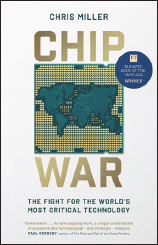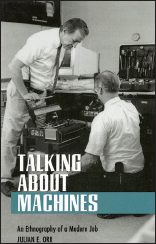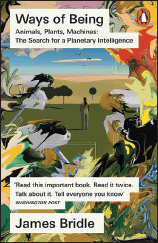What Are You Reading? Melissa Gregg
Issue: XXXI.2 March - April 2024Page: 12
Digital Citation
Authors:
Melissa Gregg
I recently organized a series of events focusing on the ecological impacts of AI, so my reading has been centered on this agenda. I've been wanting to better understand the hardware layer upon which all software depends, which is not something many writers seem interested in or equipped to explain. My way into this area draws heavily on energy social science [1] and what is sometimes called discard studies [2]. At a time when many of us may feel pressure to keep pace with technological change, it can be soothing to read works that provide a different perspective on AI hype.

Chip War by Chris Miller has been a challenging read for me after a decade working at Intel. I'm not sure how much I really learned from this book, since much of it is rehashing industry lore in a mythologizing style that centers men as agents of history. It also promotes a consensus view that military applications of silicon architecture are the ultimate demonstration of geopolitical superiority. This is a bleak view of technology at a time when the casualties of war are confronting us on a daily basis. The book has certainly inspired me, though, because I now feel motivated to write a response to it. The sheer lack of references to climate or environmental impacts on the tech supply chain is striking given the appetite for water that both data centers and chip manufacturing involve.

Julian Orr's classic Talking About Machines is a book I've been rereading as a useful precursor to the debate over electronics repair [3]. Orr notes that many studies of work fail "to address the issue of where machines come from or who will fix them." Climate change will only bring this problem to the fore as supply chains become more tenuous and the extent of automated robotic labor will challenge technicians' ability to accurately diagnose and repair machines. As an ethnographer of work, I admire the elegance of Orr's writing. The vignettes on technicians' workdays are poignant, evocative, and empathetic, full of wise observations that carry contemporary relevance. "Occupational communities can be expected to resist changes in the work process, particularly ones that increase their ties to the organization or that appear to be aimed at de-skilling the practitioners," Orr writes. After the past year of layoffs in my own field of practice—user experience—I certainly hope this continues to be true.

Finally, James Bridle's Ways of Being is a mobilizing account of the many forms of intelligence that unfold in the world around us, whether in plants, animals, guts, or prior human kin. This foray into other ways of knowing and acting reinforces the very limited idea of intelligence that today's programmable machines invoke. This book is a tonic at a time when powerful lobbyists—including AI's evangelists in the tech industry—are shaping the contours of the planet and atmosphere in dangerous ways that will be felt by future generations of humans and the few, likely wiser species remaining.
I've been wanting to better understand the hardware layer upon which all software depends, which is not something many writers seem interested in or equipped to explain.
1. https://mitpress.mit.edu/9780262038898/energy-at-the-end-of-the-world/
2. https://mitpress.mit.edu/9780262543651/discard-studies/
3. https://www.youtube.com/playlist?list=PLE_y90GftjpbQr8TyY-md0znvPrsrfHd8
Melissa Gregg is an author, ethnographer, and industry consultant on user experience and sustainability based in the U.S. and Australia. She is currently Senior Industry Fellow and International Advisory Board Member for the ARC Centre of Excellence for Automated Decision-Making and Society at RMIT University, Melbourne. [email protected]
Copyright held by author
The Digital Library is published by the Association for Computing Machinery. Copyright © 2024 ACM, Inc.


